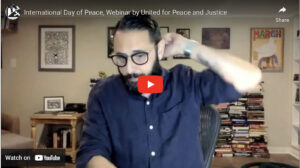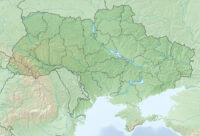
UFPJ is strongly supporting the Iran Deal as a diplomatic solution and an alternative to more wars, military interventions, and regime changes in the Middle East. As a coalition, we’ve made a call for member groups to take action by: signing our joint petition with other leading peace organizations, making calls and visits to legislators, and hosting local demonstrations and teach-ins in support of the deal.
We also hosted a live conference call on the Iran Agreement on Wednesday, August 12, to discuss why it is important to support the Joint Comprehensive Plan of Action (JCPOA) negotiated by the United States, Russia, China, Britain, France, Germany and Iran, and to hear what your local groups are doing to take action. Listen to and share the audio from our recent National Conference Call on the Iran Deal with Phyllis Bennis, Tyler Cullis, and Lara Friedman.
The Iran Agreement is not a done deal and there is still an uncertain road ahead as Congress must now decide whether the US will adhere to the international consensus or dismantle the diplomatic process. That’s why we need to act now!
Folks have turned to UFPJ to provide more information about where the Iran Deal is going and what must be done. We’ve compiled a list of resources from allies and UFPJ Member Groups here.Below are some helpful articles and videos that give a good understanding at the steps the US must that to support and have the international agreement with Iran become fully implemented.
Phyllis Bennis, “Better A War Than An Agreement?”
http://therealnews.com/t2/index.php?option=com_content&task=view&id=31&Itemid=74&jumival=13579
Video interview with Phyllis Bennis, former UFPJ Steering Committee Member and Director of the New Internationalism Project for the Institute of Policy Studies, on the Real News Network, discussing the US perspective on the Iran Deal.
“This isn’t an agreement based on trust. This is an agreement based on the most invasive kind of investigations and inspection by the United Nations watchdog over nuclear weapons, the IAEA, the International Atomic Energy Agency. These are more intrusive inspections than have ever existed, that Iran has now signed on to.”
Phyllis Bennis, “Iran Deal: A Game-Changer for the Middle East. Negotiators in Switzerland just won a huge victory for diplomacy over war. Now we’ve got to protect it.”
http://fpif.org/iran-deal-a-game-changer-for-the-middle-east/
“What’s required now is mobilizing that public support. That means strengthening the backbone of uncertain or wavering members of Congress, challenging extremist anti-diplomacy positions in the media, and most of all reminding everyone of the consequences of failure.”
Tyler Cullis and Trita Parsi, “The Myth of the Iranian Military Giant.”
http://www.niacouncil.org/the-myth-of-the-iranian-military-giant/
Article about the arms embargo and military spending in Iran, by former UFPJ staff, Tyler Cullis and Trita Parsi, both staff of the National Iranian American Council. “Saudi Arabia’s military outspends the Islamic Republic’s 5-to-1; the UAE’s does by 50 percent. And ending the arms embargo after a nuclear deal won’t change that.”
Richard Falk, ”Alliance Blackmail: Israel’s Opposition to Iran Nuclear Deal.”
http://www.commondreams.org/views/2015/07/26/alliance-blackmail-israels-opposition-iran-nuclear-agreement
Richard Falk, UN Special Rappaorteur on Palestinian Human Rights explains:
“Two realities are present as surfacing in response to the Iran Nuclear Agreement (JCPOA):
- the presidency is on one side (along with Clinton) and Congress/Israel is on the other side;
- yet more broadly conceived, the alliance remains as unconditional and bipartisan as ever, defiant toward the UN and the constraints of international law whenever expedient.”
Kate Gould and Lawrence Wilkerson, “In Iran Deal: A Vote for Diplomacy”
http://www.usatoday.com/story/opinion/2015/07/14/iran-nuclear-deal-congress-support-column/29763005/
USA Today opinion piece calling on Congress to “support the agreement to make the world safer place.”
“The overwhelming consensus among national security and non-proliferation experts is that this deal makes the U.S. and the world a safer place. Voting for the deal means not only ensuring one of the greatest diplomatic achievements of our time, but finally beginning to cease the endless cycle of U.S. military misadventures in Southwest Asia.”
William Hartung,”Iran Deal Should be First Step Toward A More Secure Middle East.”
http://www.huffingtonpost.com/william-hartung/iran-deal-should-be-first_b_7794036.htmlRay
The Director of the Arms and Security Project for the Center for International Policy addresses neoconservative opposition to the Iran deal.
“Opponents of the deal in the U.S. Congress and the region are likely to cry foul over the proposal for a phased elimination of the United Nations embargo on conventional arms transfers to Iran, alleging that it will embolden Iran, thereby increasing security threats to U.S. regional allies like Saudi Arabia and Israel. This concern is misplaced”
Ray McGovern, “Is the Military Option With Iran Off the Table?”
http://www.baltimoresun.com/news/opinion/oped/bs-ed-military-option-20150720-story.html
In the Baltimore Sun, former CIA analyst Ray Mc Govern weighs in saying:
“If, as seems likely, President Barack Obama retains enough support to complete the nuclear deal with Iran, it will be largely because enough members of the House and Senate are persuaded by his argument that the only other real option is war.
This was the rhetorical gauntlet the president threw down at his press conference last week. Equally significant, Mr. Obama omitted the until-now obligatory warning that ‘all options, including the military one, remain on the table.’”
Reza Marashi, “Will Congress Snatch Defeat from the Jaws of Victory
http://www.niacouncil.org/will-congress-snatch-defeat-from-the-jaws-of-victory/
NIAC’s research director gives an analysis of the process to implement the Iran Deal. “Looking ahead, Congress will have a sixty-day review period–until September 17–in which it can accept the deal, reject it, or do nothing. After that, there will be a maximum of twenty-two days in which President Obama can veto congressional rejection if necessary, and Congress can then try to override Obama’s veto.”
NIAC Staff, Policy Memo: Summary of the Joint Comprehensive Plan of Action
http://www.niacouncil.org/policy-memo-summary-of-jcpoa/
“On July 14, 2015, the Joint Comprehensive Plan of Action (JCPOA) was secured by the P5+1 (United States, Britain, China, France, Germany, and Russia) and Iran. The negotiated agreement will lift nuclear-related sanctions on Iran in exchange for constraints and inspections over Iran’s nuclear program to provide verifiable assurance that it is limited to peaceful purposes. Below is a summary of the agreement.”
Trita Parsi, “Five Reasons Why the Nuclear Deal Would be Good for the US”
http://www.niacouncil.org/irans-nuclear-talks-five-reasons-why-a-deal-would-be-good-for-the-u-s/
“Opponents of the deal will spend millions of dollars on ads pushing the U.S. public and Congress to kill the deal in the next few days. But while a fortune already has been spent on nit-picking the ongoing talks, virtually nothing has been invested in developing an alternative, viable solution to limit Iran’s nuclear activities.
The reality is that the opponents of the deal don’t have a solution, they only have criticism. And for many, the real value of the nuclear deal has been lost amid the barrage of condemnation surrounding the talks.
It’s worthwhile to remind ourselves why this deal is so important — and why it would be a strategic mistake of Iraq War proportions to let this opportunity slip out of our hands…”
Gareth Porter, “The Long History of Israel Gaming the Iran Threat”
http://www.middleeasteye.net/columns/long-history-israeli-gaming-iranian-threat-830388190
“Western news media has feasted on Prime Minister Netanyahu’s talk and the reactions to it as a rare political spectacle rich in personalities in conflict. But the real story of Netanyahu’s speech is that he is continuing a long tradition in Israeli politics of demonising Iran to advance domestic and foreign policy interests.
The history of that practice, in which Netanyahu has played a central role going back nearly two decades, shows that it has been based on a conscious strategy of vastly exaggerating the threat from Iran…”
Gareth Porter “”Obama’s Line on Nuclear Deal: A Second False Narrative.”
http://www.commondreams.org/views/2015/07/26/obamas-line-iran-nuclear-deal-second-false-narrative
“…[M]y enthusiasm for the agreement is tempered by the fact that the US political process surrounding the Congressional consideration of the agreement is going to have the opposite effect. And a big part of the problem is that the Obama administration is not going to do anything to refute the extremist view of Iran as determined to get nuclear weapons. Instead the administration is integrating the idea of Iran as rogue nuclear state into its messaging on the agreement.”


